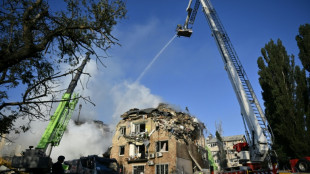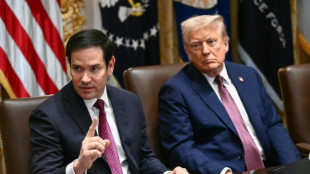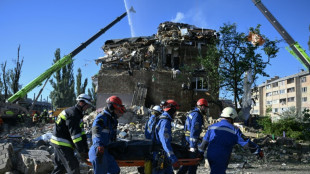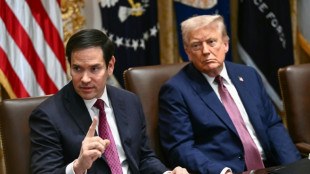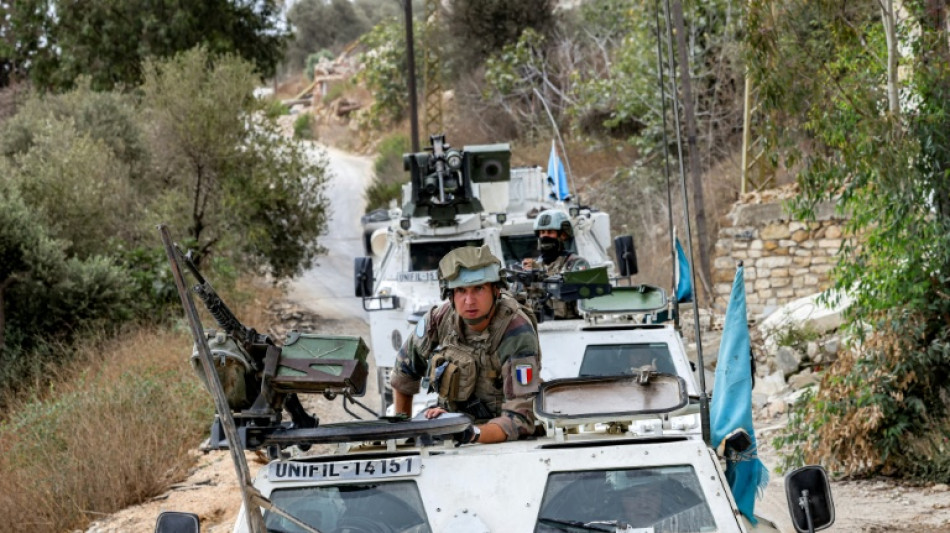

UN sets 2027 exit for Lebanon peacekeepers after Israeli strikes
The Security Council voted Thursday for UN peacekeepers to leave Lebanon in 2027, allowing only one final extension after pressure from Israel and its US ally to end the nearly 50-year-old force.
Israel hailed the upcoming termination of the United Nations Interim Force in Lebanon (UNIFIL) and urged the Beirut government to exert its authority after an Israeli military campaign devastated Iranian-backed militia Hezbollah.
With the United States dangling a veto threat, the Security Council voted unanimously for a resolution that will extend UNIFIL's mandate "a final time."
France, which has a long legacy in Lebanon, had initially sought the routine one-year extension to the force without a firm commitment to ending it.
But faced with US pressure, France put forward the compromise that authorizes UNIFIL through December 31, 2026 and then an "orderly and safe drawdown and withdrawal" within a year.
Some 10,800 peacekeepers have been acting as a buffer between Israel and Lebanon since 1978, remaining after Israel ended an occupation of southern Lebanon in 2000. UNIFIL's mandate had been due to end on Sunday.
Israel, which has been sharply critical of the United Nations over its condemnation of its relentless offensive in Gaza, hailed the UN vote.
"For a change, we have some good news coming from the UN," said Danny Danon, Israel's envoy to the world body.
"I want to remind you, 47 years ago, the Security Council decided to send the UNIFIL force to South Lebanon in order to stabilize the region. We all know they failed. Hezbollah took over the region," he said.
"Today, the Lebanese government has the responsibility to take control of the area and to understand that they have to be there -- not Hezbollah, not anyone else."
Dorothy Shea, the US envoy at the United Nations, noted that UNIFIL was explicitly meant to be "interim" and said the security situation in Lebanon was "radically different from just one year ago."
She reiterated that the United States, whose historic support for Israel has only increased under President Donald Trump, would reject any further extensions.
"We urge the international community to use the coming year to bolster the Lebanese armed forces," she said.
- Weakening fortunes for Hezbollah -
Israel has gone on the offensive against Hezbollah and other enemies since the devastating October 7, 2023 attack by Hamas. Israel killed the leader of Hezbollah, a Shiite movement forged during the 22-year Israeli occupation that frequently fired missiles over the Blue Line that separates the countries.
Under a truce between Israel and Hezbollah, the long-fledgling Lebanese national army has been deploying in southern Lebanon and dismantling Hezbollah's infrastructure.
Lebanese President Joseph Aoun had last week called for the UN peacekeepers to remain, arguing that curtailing UNIFIL's mandate "will negatively impact the situation in the south, which still suffers from Israeli occupation."
But Lebanon's government quickly welcomed the new resolution after it passed, emphasizing the securing of one last renewal.
Aoun in a statement expressed hope "that the additional year for withdrawal will be a fixed deadline for confirming and strengthening Lebanon's sovereignty over its borders."
French UN envoy Jay Dharmadhikari praised the "ambitious" work being taken by the Lebanese Armed Forces and said the extra year for UNIFIL would give it time to establish authority.
- Hezbollah can exploit gap? -
Britain, normally in lockstep with the United States, voiced appreciation for the French diplomacy but regretted that the decision was not made "on the basis of an evidence-based assessment."
"The United Kingdom believes that a premature withdrawal of UNIFIL would risk fostering a security environment that Hezbollah can exploit," British envoy James Kariuki said.
"That would harm communities both on sides of the Blue Line and set back efforts for a long-term political agreement," he said.
China, in a thinly veiled swipe at the United States, denounced the "stubborn insistence of a permanent member" that has shown "total disregard" for the situation on the ground.
"Indeed no UN mission should exist permanently. But no mission should withdraw in haste while the situation remains tense," Chinese envoy Geng Shuang said.
F.Mair--NWT
